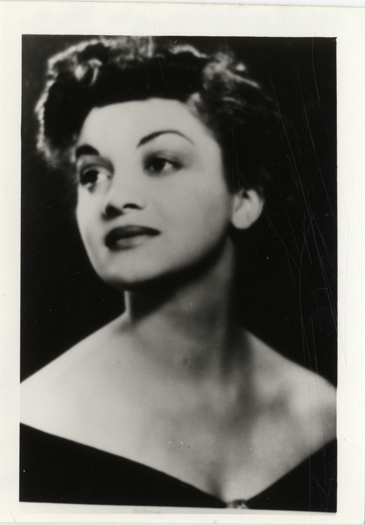
On 7 November 1936 Roxborough’s play Father Knows Best was presented by the Roxane Players in the little theatre of the Detroit Institute of Arts. (Because no scripts are extant and it was not reviewed in surviving papers, its content is unknown.) She ran the Roxane Players, wrote for the campus newspaper, and kept her studies up. She got her dramatic group off the ground, according to Nimrod Carney, because “she was Elsie Roxborough!”
There were half a dozen black groups in Detroit then. For example, [poet] Robert Hayden worked backstage with the Roxane Players and in time started his own group, The Paul Robeson Players. Other groups had more direction than Elsie’s. Hers operated on the force of her personality and went out of existence until she came back to town. She had soirees upstairs at the Frogs Club, and she used that as a rehearsal place.
She was a little older than I. I hadn’t anything and was unsophisticated. I was abusing myself in those plays: it was an inside group and I was not on the inside. But I didn’t mind because those plays showed me the way to the trough and I was happy to reach the trough.
Elsie was a charming… young lady who had a talent. It was unusual for anybody to get such a group together, but it was extraordinary that people would follow the lead of a black female in the thirties.
It was much harder for the female then than now to reach out and grab a piece of the world that she wanted. Following her theatrical debacle in Chicago, on New Year’s day 1937 the Defender printed a new, two-column photo of Roxborough on its society pages. The caption said she was spending the holiday in Cleveland visiting Evelyn Jackson. Langston Hughes was also in Cleveland then, visiting his mother. The two playwrights probably discussed their work, for in March 1937 Hughes was in Detroit viewing rehearsals of his Drums of Haiti that the Roxane Players were preparing for presentation on 15, 16, and 17 April. It was a historical play about Jean-Jacques Dessalines, a rebellious slave who freed his people to become black emperor of Haiti. Roxborough had heard about Langston Hughes ever since she was a child.
She was six when Hughes, at eighteen, published his first poem in The Brownie Book, the NAACP magazine for children; seven when his famous “The Negro Speaks of Rivers” came out in the June 1921 issue of The Crisis. He was a leading figure in the Harlem Renaissance and a member of the radical group of Negro “actors” invited to the Soviet Union in 1932 to make a movie about racism in America. Roxborough must have assumed that the black flowering of the twenties that Hughes helped create had broken the way for other writers and that she, too, would find a niche thanks to her theatrical activities.
On the personal level, rumors abounded. Len Reed, in the Pittsburgh Courier, said, “Elsie Roxborough is doing it again. This time the play is by Langston Hughes. He’s the fellow who wrote the book for Mulatto. With so much in common between the two, the play should be a success.” William Smallwood, in his Afro-American column, “Social Skits,” wrote: “Last weekend, eclat Detroit probably packed into their Lucy Thurman YWCA to witness Langston Hughes’s Troubled Island, the title of which dashing Mr. Hughes allowed equally dashing Elsa Roxboro [sic] to change to Drums of Haiti. The quidnuncs would have you swoon in your best Melanie fashion over the Hughes-Roxboro duo because… these two are supposedly in the throes of love…. [Elsie] has what the girls call “flash.” ”
When Hughes was questioned by the Afro-American about impending marriage, he replied, “I’m afraid that my marital intentions have been greatly exaggerated…. I am a professional poet and while poetry is so frequently associated with romance, there seems to be little compatibility between poetry and marriage, especially where one must depend upon it to support a wife.”16 Elsie Roxborough and Langston Hughes were alike in being educated and dreamers, and involved in the theatre. But she had always lived among the upper-crust; Hughes identified with the street black. She was tall- 5″7″ -and he was short-5’5” -and twelve years older. She lived in style; he shared his mother’s basement flat where his stepfather was building custodian. Although Hughes seemed close to Roxborough as an artist, he was still, like Joe Louis, a lower-class figure.
In 1937 Joe Louis became heavyweight boxing champion, and black America exploded in jubilation. The eyes of the Roxborough family were on Uncle John’s prote6g to whom experiences would come that had never before been known by an American Negro. Was this triumph connected to Elsie Roxborough’s decision the same year to leave her race?
Her rationale was the lack of opportunities in the theatre, a problem she had discussed with Langston Hughes: “I agreed… that it was difficult for any colored person to gain entrance to the American entertainment field except as a performer – as a director or technician almost impossible -and for a colored woman I would think it harder even than for a man. Elsie was often mistaken for white in public places so it would be no trouble at all for her to pass as white.”
